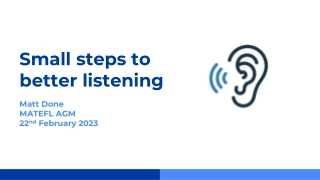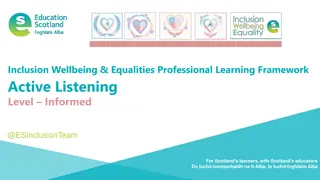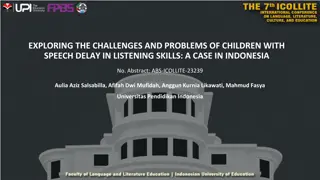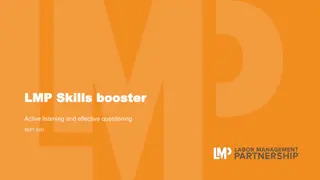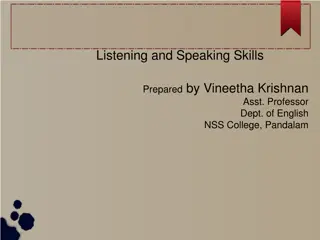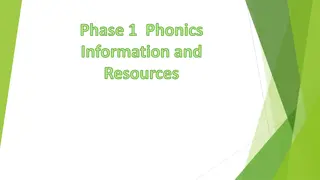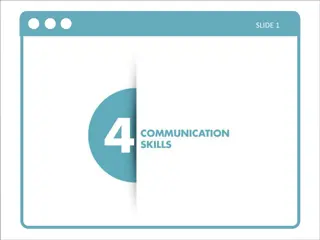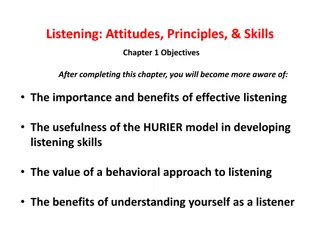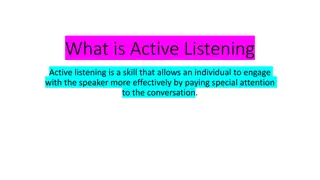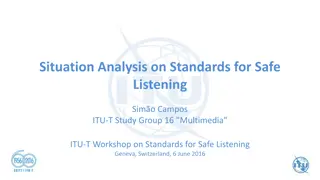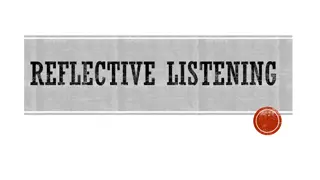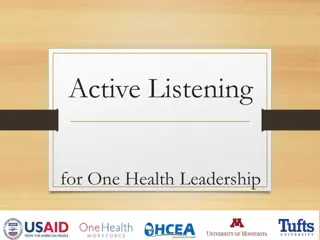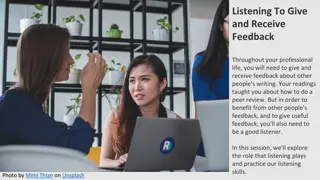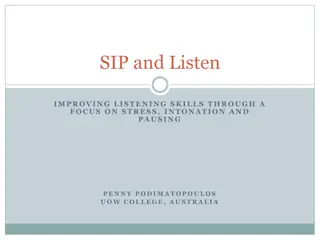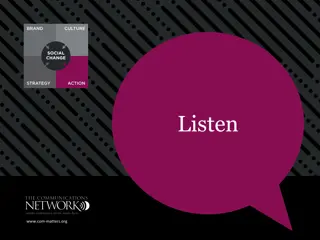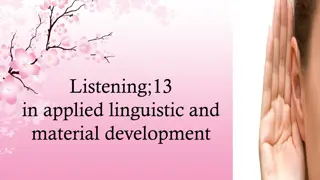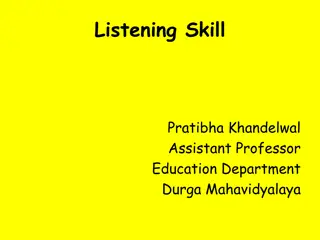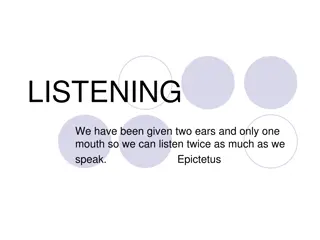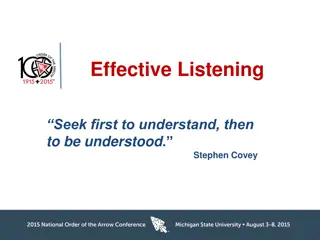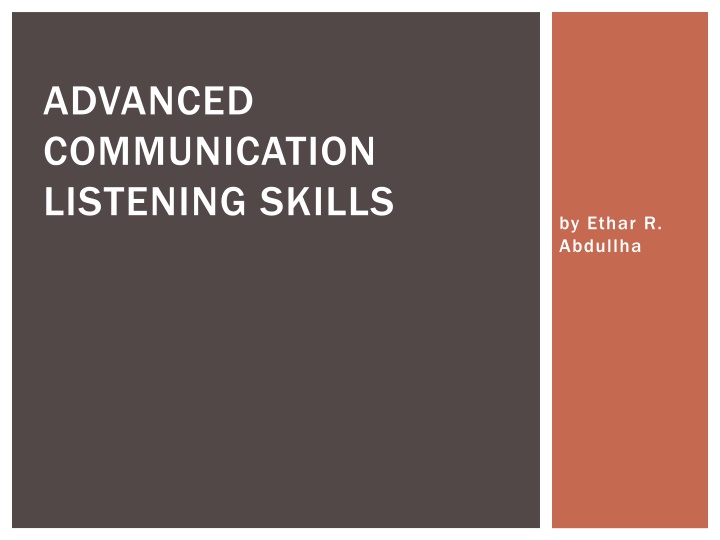
Effective Listening Skills for Improved Communication
Enhance your communication skills by mastering the art of effective listening. Understand the importance of being a good listener, common challenges in listening, and different listening modes. Improve your communication by truly hearing and interpreting others' messages.
Download Presentation

Please find below an Image/Link to download the presentation.
The content on the website is provided AS IS for your information and personal use only. It may not be sold, licensed, or shared on other websites without obtaining consent from the author. If you encounter any issues during the download, it is possible that the publisher has removed the file from their server.
You are allowed to download the files provided on this website for personal or commercial use, subject to the condition that they are used lawfully. All files are the property of their respective owners.
The content on the website is provided AS IS for your information and personal use only. It may not be sold, licensed, or shared on other websites without obtaining consent from the author.
E N D
Presentation Transcript
ADVANCED COMMUNICATION LISTENING SKILLS by Ethar R. Abdullha
EFFECTIVE LISTENING SKILLS To be a great communicator, the first step is To be a great communicator, the first step is being a good being a good listener listener Many Many lawyers believe they are lawyers believe they are good listeners on a on a 5 5 step level step level of listening of listening skills most only rank a level a level 2 2 Lawyers Lawyers are usually good at responding are usually good at responding to content or the cognitive to content or the cognitive portion Effective communication exists between two Effective communication exists between two people when the receiver interprets and people when the receiver interprets and understands the senders message in the same understands the senders message in the same way the way the senderAP senderAP intended it intended it good listeners, but skills most only rank , but portion
DIFFICULTY LISTENING Most people have difficulty listening because: They are Most people have difficulty listening because: They are preoccupied with something preoccupied with something else They are waiting for a chance to put forth their view They are waiting for a chance to put forth their view and are just waiting for an and are just waiting for an opening They are formulating a rebuttal to what They are formulating a rebuttal to what the speaker is speaker is saying saying They are listening to their own beliefs They are listening to their own beliefs about what is being what is being said said They are evaluating and making judgments about the They are evaluating and making judgments about the speaker or the speaker or the message message They don't ask for clarification when they don't They don't ask for clarification when they don't understand understand else opening the about
LISTENING MODES Competitive or Combative listening Competitive or Combative listening- - when we are more interested in promoting our own point of more interested in promoting our own point of view than in understanding or exploring someone view than in understanding or exploring someone else's view else's view- -we lie in wait for an opening to we lie in wait for an opening to disagree disagree when we are Passive or Attentive Listening Passive or Attentive Listening- -we are genuinely interested in hearing and understanding the interested in hearing and understanding the others persons point of view. We are attentive others persons point of view. We are attentive but passively listen but passively listen- -we assume we are we assume we are understanding but don't confirm it at all understanding but don't confirm it at all we are genuinely
REFLECTIVE OR ACTIVE LISTENING This is most useful and important listening skill. This is most useful and important listening skill. In active listening we are also genuinely In active listening we are also genuinely interested in understanding what the other interested in understanding what the other person is thinking, feeling, wanting or what the person is thinking, feeling, wanting or what the message means, and we are active in checking message means, and we are active in checking out our understanding before we respond with out our understanding before we respond with our own message. We restate or paraphrase our our own message. We restate or paraphrase our understanding of their message and reflect it understanding of their message and reflect it back to the sender for clarification. This back to the sender for clarification. This verification or feedback process is what verification or feedback process is what distinguishes active listening and makes it distinguishes active listening and makes it effective effective

